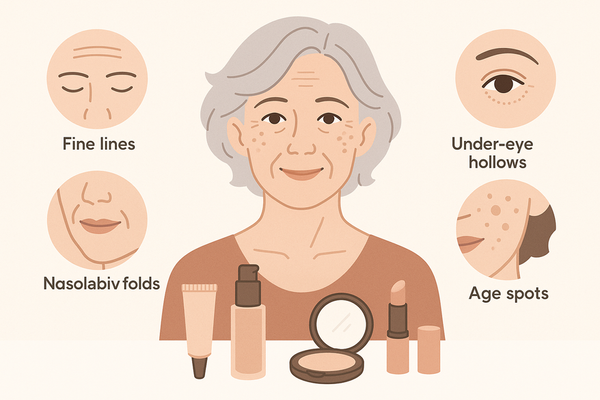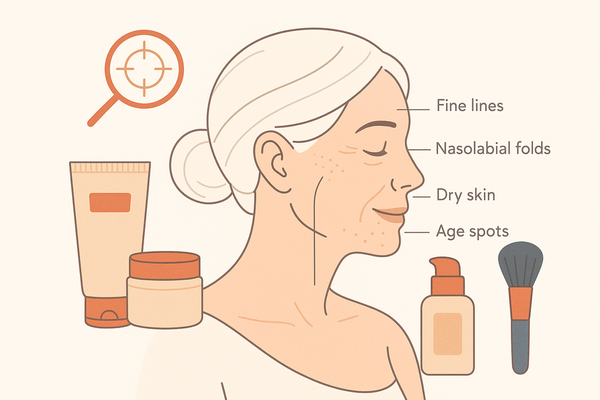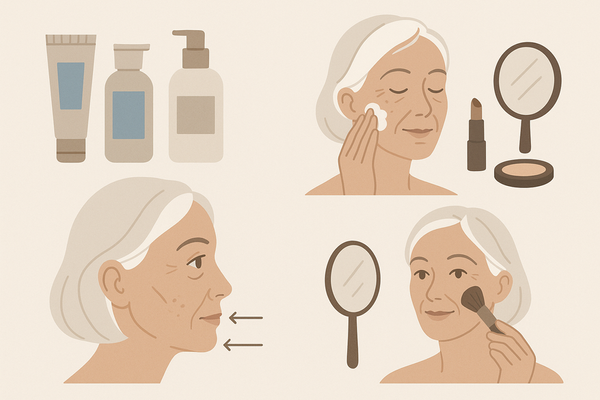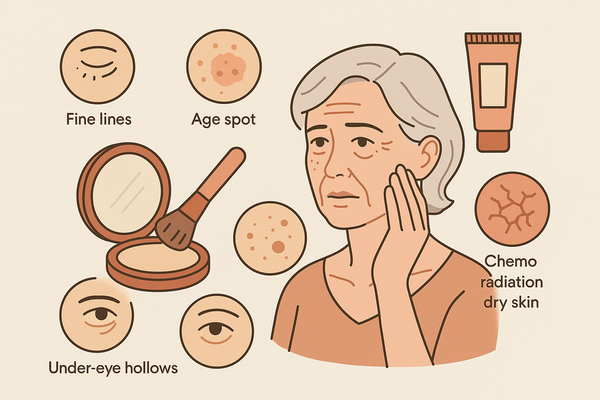How Social Empowerment through Innovative Makeup Apps Is Redefining Societal Norms
Explore how social empowerment through innovative makeup apps fosters self-expression, promotes inclusivity, and reshapes traditional beauty norms.
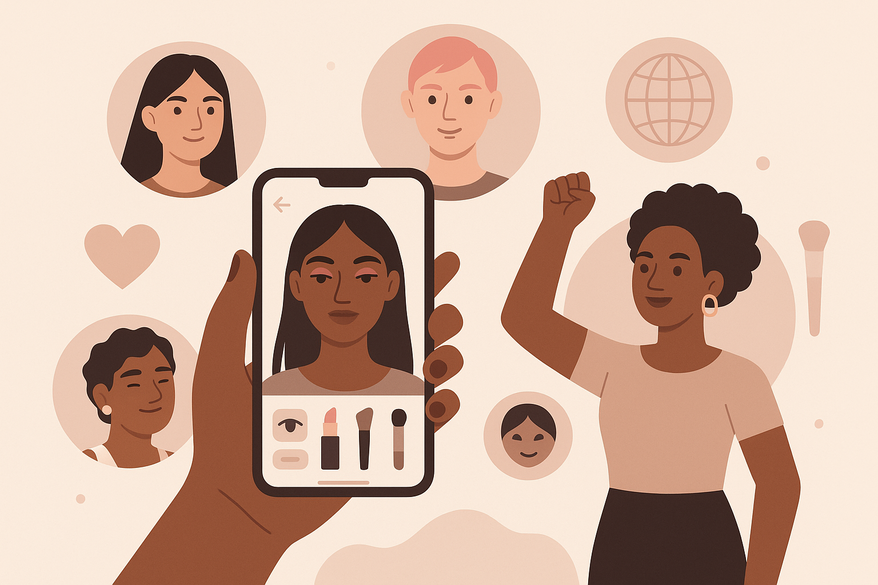
Estimated reading time: 8 minutes
Key Takeaways
- Innovative makeup apps leverage AI and AR to offer virtual try-ons and personalized beauty solutions.
- Three pillars of empowerment: self-expression, inclusivity, and community engagement.
- These apps are challenging traditional beauty standards and promoting broader representation.
- Future trends demand robust data privacy, reduced algorithmic bias, and enhanced accessibility.
Table of Contents
- I. Introduction
- II. Understanding Innovative Makeup Apps and Beauty Technology
- III. Social Empowerment through Innovative Makeup Apps
- IV. Redefining Societal Norms
- V. Case Studies
- VI. Challenges & Future Outlook
- VII. Conclusion
I. Introduction
Social empowerment through innovative makeup apps is transforming the beauty industry by integrating cutting-edge technology—artificial intelligence, augmented reality, and analytics—to create personalized, accessible experiences. From Beauty Tech to the Complete Guide to Beauty Tech, these platforms enable digital try-ons, real-time customization, and interactive tutorials, giving users unprecedented control over their beauty routines.
In this post, we’ll explore how social empowerment through innovative makeup apps fosters self-expression, promotes inclusivity, and reshapes traditional beauty norms.
II. Understanding Innovative Makeup Apps and Beauty Technology
Innovative makeup apps use AR, AI, and data analytics to offer features such as:
- Virtual try-ons with hyper-realistic overlays (Virtual Makeup Try-On)
- AI-driven shade matching and product recommendations
- Interactive tutorials with real-time face tracking
The evolution of beauty tech spans from early physical gadgets and simple digital filters to today’s smartphone-based AR overlays and machine-learning personalization (AI Makeup Coach).
III. Social Empowerment through Innovative Makeup Apps
At its core, social empowerment means giving individuals agency over their self-presentation, confidence, and access to trends beyond traditional constraints.
The three pillars of empowerment:
-
Self-Expression & Confidence
Safe virtual experimentation, immediate feedback, and personalized tutorials build skills and pride. -
Inclusivity
Extensive shade ranges for every skin tone, facial-feature mapping, and tools accommodating unique features—scars, vitiligo, and beyond (15 Beauty Tech Software). -
Community & Trend Participation
In-app forums, social sharing, and live events that foster connection and celebrate diverse looks.
According to a Rise of AR Makeup Apps survey, over 68% of users feel more confident after virtual try-ons.
IV. Redefining Societal Norms with Social Empowerment through Innovative Makeup Apps
Traditional beauty standards often relied on narrow shade ranges and culturally biased ideals. Today’s app-driven norms offer:
- Unlimited color palettes vs. limited in-store lines
- AI-driven personalization vs. one-size-fits-all recommendations
- Global digital access vs. local retail constraints
Examples include gender-fluid makeup filters empowering non-binary users, accurate shade calibration for darker skin tones, and minimalistic presets for low-maintenance routines—dismantling old barriers and broadening the definition of beauty.
V. Case Studies: Social Empowerment through Innovative Makeup Apps
Case Study 1: L’Oréal’s Hair Color Virtual Try-On & SkinConsult AI
AR hair color overlays and AI skin analysis suggest tailored routines, reaching underserved users who previously lacked in-store support.
Case Study 2: YouCam Makeup
AI-powered smart portrait enhancements, adaptive shade ranges, and eco-friendly product filters; over 800 million downloads worldwide.
User Testimonials:
- “I never felt my skin tone was represented—now I see my exact match in seconds.”
- “Playing with bold colors virtually taught me techniques I never dared try.”
- “Joining the in-app community boosted my confidence and sparked new friendships.”
Market data projects a 20% CAGR for the global beauty tech market through 2030.
VI. Challenges & Future Outlook for Social Empowerment through Innovative Makeup Apps
Challenge 1: Privacy & Data Security
Safeguarding facial recognition and biometric data with transparent consent frameworks and encryption.
Challenge 2: Accessibility & Device Compatibility
Optimizing performance on low-end devices and ensuring WCAG compliance for users with impairments.
Challenge 3: Algorithmic Bias
Conducting regular bias audits and expanding diverse training datasets to avoid reinforcing stereotypes.
Future Trends: Generative AI for hyper-personalized routines (AI Makeup App Routine), stricter privacy regulations, and inclusive datasets.
Recommendations:
- Open-source diverse training datasets and audit AI models.
- Prioritize accessible design and device optimization.
- Educate users on digital beauty literacy and data privacy.
VII. Conclusion
From defining beauty tech to dissecting empowerment pillars, societal shifts, case studies, and future challenges, we see how social empowerment through innovative makeup apps is driving a more inclusive, confident beauty culture. By enabling self-expression, expanding representation, and democratizing expert tools, these apps are reshaping norms for every user.
Call to Action: Explore these makeup apps today, share your digital beauty experiences, and advocate for ethical, empowering beauty technology that uplifts everyone.
FAQ
Q: Are virtual try-ons accurate for all skin tones?
A: Modern apps use advanced shade calibration and diverse datasets to ensure accurate matches across the full spectrum of skin tones.
Q: How is user privacy protected?
A: Look for platforms with transparent consent policies, end-to-end encryption, and compliance with regulations like GDPR.
Q: Can I access these features on older smartphones?
A: While most apps optimize for recent devices, some offer lite modes to improve performance on lower-end hardware.
Q: Do makeup apps support unique features like scars or vitiligo?
A: Yes. Inclusive facial-mapping tools accommodate scars, vitiligo, and other distinctive features for personalized looks.
Q: What future trends will shape beauty tech?
A: Expect generative AI for automated look creation, stricter privacy frameworks, and continuous expansion of inclusive datasets.

